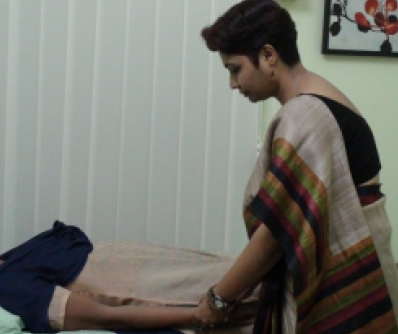Understanding Invisible Disabilities and disorders
When someone uses a wheelchair or a cane, their challenges are visible, and their needs are often accommodated. But what about the struggles no one can see? Invisible disabilities and disorders—like ADHD, dyslexia, chronic pain, PTSD, or depression—are just as real, yet they often go unacknowledged or misunderstood.
At Crystal Minds, we have seen first-hand how invisible disabilities and disorders impact lives in profound ways. Our clients teach us daily that just because something isn’t seen doesn’t mean it isn’t felt.
Living with the Unseen distress
Imagine waking up every day with chronic pain, only for people to dismiss it with a casual, “You look fine.” Or struggling with anxiety, but being told, “Just calm down, it’s not a big deal” .These are common experiences for individuals with invisible disabilities and disorders. The lack of outward signs often leads others to invalidate their struggles, which can leave people feeling unseen, unheard, and unsupported.
Invisible disabilities and disorders are not rare, yet they are rarely understood. From children struggling in school with dyslexia to adults navigating workplaces with chronic fatigue, these challenges can touch every area of life.
The Burden of Misunderstanding
One of the greatest difficulties faced by those with invisible disabilities and disorders is skepticism. People often assume that if they can’t see a problem, it doesn’t exist. Comments like, “You’re just being dramatic,” or, “It’s all in your head,” can be devastating. For many, this doubt leads to guilt, shame, and the exhausting task of constantly explaining or defending themselves.
At Crystal Minds, we often hear from clients that the emotional toll of this scepticism is just as heavy as the disability itself.
Navigating Daily Life
Invisible disabilities and disorders come with unique challenges in daily life:
- In Relationships: Loved ones might struggle to understand what they cannot see. This can lead to feelings of isolation, even in close relationships.
- At Work: Many hesitate to disclose their condition at work, fearing judgment or discrimination. Without accommodations, however, they may struggle to meet expectations.
- In Education: For children, undiagnosed or misunderstood disabilities like dyslexia or ADHD can lead to labeling, bullying, or being seen as lazy or unmotivated.
These challenges create an ongoing battle to maintain self-esteem, confidence, and a sense of belonging.
Mental Health and Invisible Disabilities and disorders
Living with an invisible disability often comes with secondary mental health struggles. Anxiety, depression, and feelings of inadequacy are common. The pressure to “keep up” while masking symptoms can lead to burnout. Many people suffer in silence, fearing judgment if they ask for help.
At Crystal Minds, we provide a safe and non-judgmental space for individuals to share their struggles and work towards healing.
How Can We Support Those with Invisible Disabilities and disorders?
It starts with awareness, empathy, and action. Here are a few ways we can make a difference:
- Listen Without Judgment: If someone opens up about their struggles, believe them. Their experiences are valid, even if you don’t fully understand them.
- Educate Yourself: Learn about invisible disabilities and the challenges they bring. Awareness is the first step toward breaking down stigma.
- Be Kind: Simple acts of kindness—like offering patience, compassion, or a listening ear—can mean the world to someone who feels unseen.
- Advocate for Change: Support inclusivity in workplaces, schools, and communities. Push for accommodations and policies that recognize and respect invisible disabilities.
- Ask How You Can Help: Instead of assuming what someone needs, ask them directly. It shows respect and builds trust.
Crystal Minds Is Here for You
At Crystal Minds, we believe everyone deserves to feel seen and supported, regardless of whether their struggles are visible. Our team is dedicated to helping individuals and families navigate the unique challenges of invisible disabilities. Through therapy, education, and advocacy, we aim to create a world where every story is heard and every need is met.
Invisible disabilities and disorders may not be visible, but their impact is undeniable. Together, we can create a more understanding and compassionate world.
If you or someone you love is struggling with an invisible disability or disorder , reach out to us at Crystal Minds. You don’t have to face this journey alone—we’re here to help.


Testing